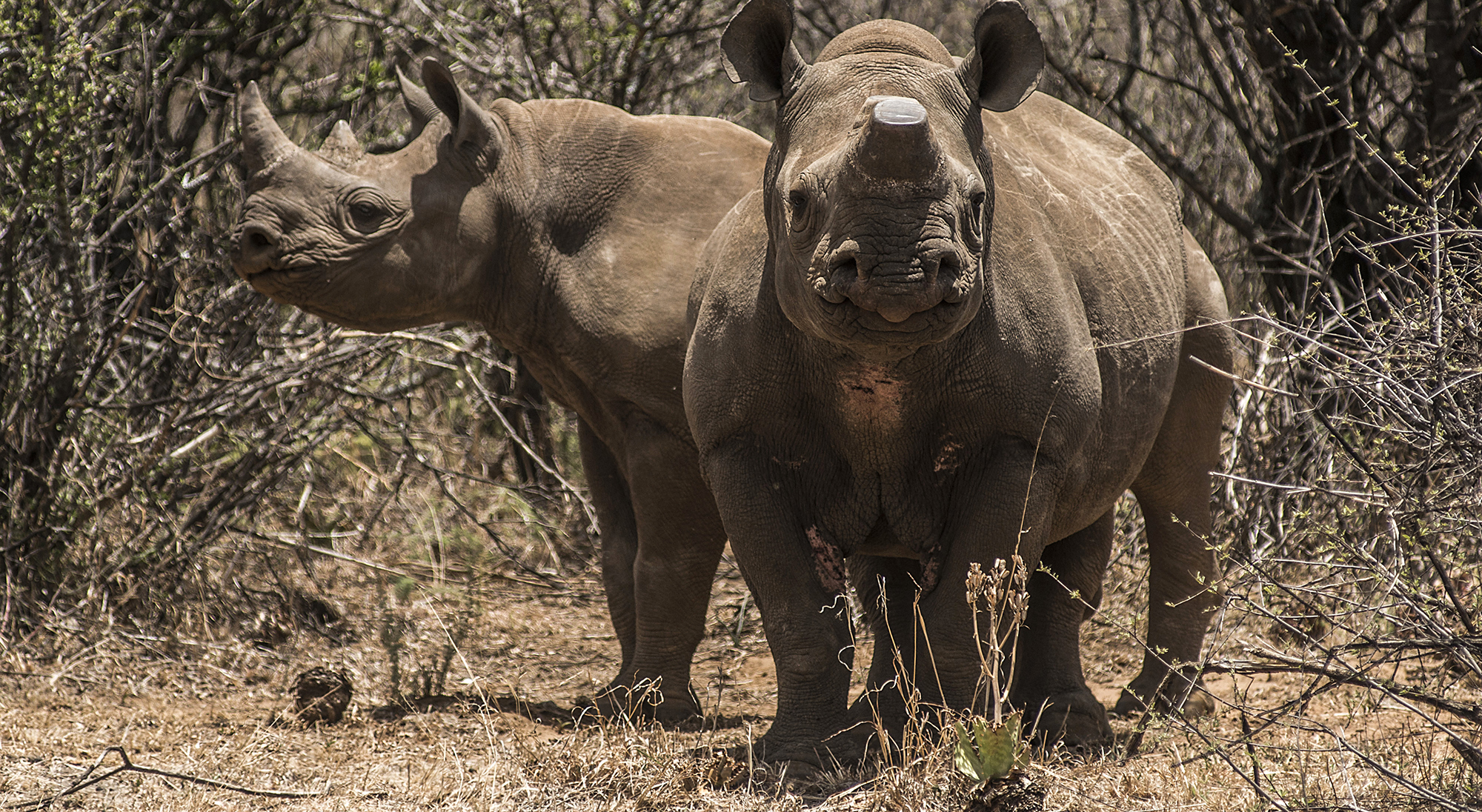The NGO African Parks is in the process of “rewilding” the 2,000 white rhinos it bought from pachyderm tycoon John Hume two years ago. This means it is translocating the animals across South Africa and the wider continent, restoring the species to at least some of its former range.
These rhinos, which comprise more than 10% of the global population of the species, are an unprecedented conservation legacy — a treasure trove for biodiversity. No animal rights or welfare NGO comes close to this achievement.
Hume of course has been in the headlines of late — accused in court of trying to fraudulently circumvent a 50-year-old global ban on the rhino horn trade — leading some to question his conservation credentials.
Read more: How John Hume allegedly schemed to defy global rhino horn trade ban
Hume maintains his innocence and one presumes will have his day in court. I am not going to comment here on the merits of the State’s case against him and his five co-accused — that is for a judge to decide.
But it is perhaps worth noting that on Wednesday, 13 August 2025, the Namakgale Magistrate’s Court in Phalaborwa formally withdrew all 35 charges against rhino rancher Derek Lewitton, who also faced accusations of horn skullduggery among other things after a raid on Black Rock Rhino game reserve in Limpopo.
Read more: Rancher out on R100,000 bail after 26 unreported rhino carcasses, horns found on Limpopo farm
Lewitton, like Hume, has been a vocal advocate for the lifting of the global ban on trade in rhino horn that was imposed in 1977.
In Hume’s case, critics long contended that he was literally betting the farm on the eventual lifting of the ban on the international trade in rhino horn — and having interviewed him while visiting his ranch for stories a number of times over the years, I suspect that was probably the case.
But I see no reason why that should cast his obvious conservation legacy in a bad light — regardless of his innocence or guilt in the current case.
Hume regularly darted and de-horned his rhinos for two reasons: as an anti-poaching measure and to accumulate a stash of horn that would have been worth hundreds of millions of dollars in the event of the lifting of the global trade ban.
When I last asked him about this in 2021, Hume told me that up to that point he had accumulated nearly nine tons of rhino horn.
Hume also always maintained that he had a soft spot for rhinos, and he spent a fortune on his breeding project that began in Mpumalanga before his rhinos were moved to a more than 8,000 ha ranch near Klerksdorp in North West province. In fact, he claimed he spent about $120-million.
/file/dailymaverick/wp-content/uploads/2025/08/6I1A4718.jpg)
In business terms, Hume's returns were, to say the least, not great. He spun gold from hotels, fool’s gold from pachyderms.
Hume sold his rhino breeding project to African Parks in September 2023 for an undisclosed sum after an online auction failed to attract a single bid.
As I previously reported, African Parks’ financial statements for 2023 make it clear that it paid less than $13-million — in short, a fire sale. The NGO has never contested this assessment.
Read more: John Hume’s rhinos were cheap but rewilding comes at a price
So Hume personally lost mega money on megafauna. But the conservation dividends from his efforts are mammoth.
Rhinos by the number
The last time a rhino was poached on Hume’s former property was in 2017. His rhinos were well protected by a state-of-the-art security system featuring a 24/7 ops room monitoring footage from cameras that were a ubiquitous presence on the ranch. His highly trained and heavily armed security team had access to a helicopter for rapid response.
That’s the thing about rhino conservation: it costs big bucks to protect an animal whose horns fetch big bucks in Asia, where they are coveted for frankly preposterous medical reasons.
As I have previously noted, this is a key reason why the percentage of South Africa’s rhino population in private hands — a product of the country’s unusual laws that allow for private ownership of wild game — has steadily grown. Private or non-government ownership of the species is now close to two-thirds.
Read more: Two out of three SA white rhinos now in private hands while poachers decimate KZN herds
As private rhino numbers surged, populations in state-run reserves such as the Kruger National Park plunged as poaching took its toll to feed horn demand in newly affluent Asian countries such as Vietnam.
Last year, the International Rhino Foundation announced that South Africa’s white rhino populations — indeed, Africa’s as a whole — were on the rise again after more than a decade of decline. This was good news, and the number of white rhinos in South Africa was estimated to be just shy of 14,000.
But curiously, the report did not mention the critical role played by the private sector on this front.
Poaching has also declined on state-owned reserves, in part because of dehorning, but also because there are simply fewer rhinos to target in such parks.
The bottom line is that rhino numbers in South Africa would not be at their current levels were it not for the private sector. And Hume was the absolute leader in this regard.
Debates about whether or not to legalise the global trade in rhino horn are endless — and largely circular — and I will address that in another column.
Hume’s critics also cringed at rhinos being raised on a ranch and regularly dehorned, a situation that seemed, in the eyes of some, to reduce their status and living conditions to that of livestock. But in vast wild places such as the Kruger, rhinos were being mowed down ruthlessly.
And Hume’s former rhinos appear to be suitable for rewilding, while the meticulous studbook that his vet kept means the herd is in good genetic nick with no signs of inbreeding.
I have previously criticised African Parks’ transfer of some of Hume’s animals to Rwanda on the grounds that it is a vile and sinister regime where the rhinos will be far safer than human dissidents. But the overall goal of distributing the species around Africa is a noble one.
Read more: Loaded for Bear — African Parks has disgracefully sent more SA rhinos to repressive Rwanda
And it would not have been possible without John Hume’s efforts, regardless of his ultimate motivation. More than 10% of the world’s white rhino population — and about 8% of the global population of all five remaining species — are treading this Earth because of Hume.
To use another business term, in the conservation world, that is material. DM





 A pair of rare black rhinos, one with its horns removed as an anti-poaching measure, graze in the bush on a ranch belonging to John Hume, hotel magnate and rhino farmer, in South Africa in 2015. (Photo: Waldo Swiegers / Bloomberg via Getty Images)
A pair of rare black rhinos, one with its horns removed as an anti-poaching measure, graze in the bush on a ranch belonging to John Hume, hotel magnate and rhino farmer, in South Africa in 2015. (Photo: Waldo Swiegers / Bloomberg via Getty Images)